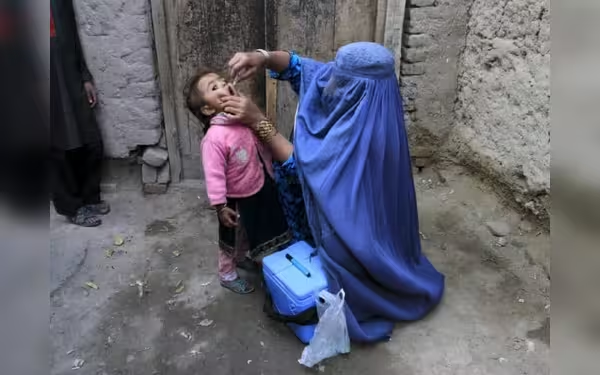Saturday, November 16, 2024 07:42 PM
Taliban Suspends Polio Vaccination Campaigns in Afghanistan
- Taliban halts crucial polio vaccination efforts.
- Global health experts express deep concern.
- Suspension risks outbreaks in neighboring countries.
 Image Credits: tribune.com.pk
Image Credits: tribune.com.pkThe Taliban's suspension of polio vaccination campaigns in Afghanistan raises global health concerns and risks outbreaks in neighboring regions.
The recent decision by the Taliban to suspend polio vaccination campaigns in Afghanistan has raised alarm bells across the globe. Polio, a highly infectious disease that primarily affects children, can lead to paralysis and even death. For decades, health organizations have worked tirelessly to eradicate this disease, and Afghanistan has been one of the last strongholds where polio remains a threat. The suspension of vaccination efforts is a significant setback in the fight against this preventable illness.
Polio vaccination campaigns have been crucial in reducing the number of polio cases worldwide. In Afghanistan, where the disease has persisted due to various factors, including conflict and instability, these campaigns have been a lifeline for many children. The Taliban's decision to halt these efforts comes at a time when the country is already facing numerous challenges, including health crises and humanitarian issues.
Health experts and organizations, including the World Health Organization (WHO), have expressed deep concern over this development. They fear that without vaccination, the number of polio cases could rise sharply, reversing years of progress made in the fight against the disease. The global community has invested significant resources into polio eradication, and any setback can have dire consequences.
Moreover, the suspension of vaccination campaigns not only affects Afghanistan but also poses a risk to neighboring countries. Polio knows no borders, and an increase in cases in Afghanistan could lead to outbreaks in other regions, threatening the health of children everywhere.
The halt of polio vaccination campaigns by the Taliban is a troubling development that could have far-reaching implications. It is essential for the global community to engage with the Taliban and advocate for the resumption of these critical health initiatives. Protecting children from preventable diseases should be a priority for all, and it is vital that efforts to eradicate polio continue unabated. The health of future generations depends on the actions taken today.













